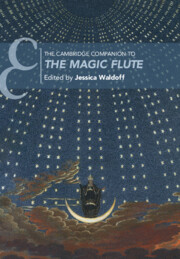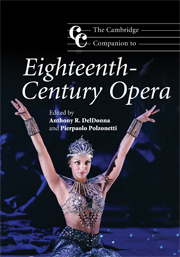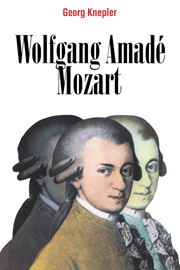The Cambridge Companion to The Magic Flute
Since its premiere in 1791, The Magic Flute has been staged continuously and remains, to this day, Mozart's most-performed opera worldwide. This comprehensive, user-friendly, up-to-date critical guide considers the opera in a variety of contexts to provide a fresh look at a work that has continued to fascinate audiences from Mozart's time to ours. It serves both as an introduction for those encountering the opera for the first time and as a treasury of recent scholarship for those who know it very well. Containing twenty-one essays by leading scholars, and drawing on recent research and commentary, this Companion presents original insights on music, dialogue, and spectacle, and offers a range of new perspectives on key issues, including the opera's representation of exoticism, race, and gender. Organized in four sections – historical context, musical analysis, critical approaches, and reception – it provides an essential framework for understanding The Magic Flute and its extraordinary afterlife.
- Presents fresh insights on music, dialogue, and spectacle, and offers a range of new perspectives on topics including the opera's representation of exoticism, race, and gender
- Provides an up-to-date, broad-ranging, and accessible overview of recent scholarly debates and places the opera in its historical and present-day intellectual contexts
- Offers an essential starting point and frame of reference for anyone studying the opera as well as a guide to navigating the complex and often contradictory scholarly literature devoted to it
Product details
November 2023Paperback
9781108446846
320 pages
243 × 169 × 21 mm
0.67kg
Available
Table of Contents
- Introduction Jessica Waldoff
- Part I. Conception and Context:
- 1. German Opera in Mozart's Vienna Estelle Joubert
- 2. 'The Magic Flute's' Libretto and German Enlightenment Theater Reform Martin Nedbal
- 3. Emanuel Schikaneder and the Theater auf der Wieden Lisa de Alwis
- 4. 'The Magic Flute' in 1791 Austin Glatthorn
- Part II. Music, Text, and Action:
- 5. Music as Stage-Craft Julian Rushton
- 6. Enduring Portraits: The Arias Laurel E. Zeiss
- 7. 'All Together, Now'? Ensembles and Choruses in 'The Magic Flute' Nicholas Marston
- 8. Musical Topics, Quotations, and References Mark Ferraguto
- 9. Instrumentation, Magical and Mundane Emily I. Dolan and Hayley Fenn
- 10. The Dialogue as Indispensable Catherine Coppola
- 11. Music, Drama and Spectacle in the Finales John Platoff
- III. Approaches and Perspectives:
- 12. Seeking Enlightenment in Mozart's 'Magic Flute' Richard Kramer
- 13. Birdsong and Hieroglyphs: Exoticism and Enlightened Orientalism in 'The Magic Flute' Matthew Head
- 14. Partial Derivatives: Sources, Types, and Tropes in 'The Magic Flute' Thomas Bauman
- 15. Pamina, the Queen, and the Representation of Women Jessica Waldoff
- 16. Blackness and Whiteness in 'The Magic Flute' – Reflections from Shakespeare Studies Adeline Mueller
- IV. Reception, Interpretation, and Influence:
- 17. Zauberflöte: A Cultural Phenomenon in an Age of Revolution Ian Woodfield
- 18. 'The Magic Flute' in Biography, Criticism, and Literature Simon P. Keefe
- 19. The Elusive Compositional History of 'The Magic Flute' Daniel R. Melamed
- 20. Staging 'The Magic Flute' Kate Hopkins
- 21. Ingmar Bergman's Film Version of 'The Magic Flute' Dean Duncan.







